- Home
- Alice Hoffman
Magic Lessons Page 10
Magic Lessons Read online
Page 10
Maria studied him, observing his pallor and the blood he spit upon the dock, then turned to his father. “Take him on that ship and he’ll be dead before you reach Boston.” She sounded utterly sure of herself, so much so that Samuel Dias had begun to listen to her despite the attack of pain that left him straining for the next mouthful of air. “Unless you take me with you,” she added. “I won’t let him die.”
She had the ingredients for a breakbone fever cure that Adrie had taught her. It had been added to her Grimoire with ink drawn from the stalks of vibrant coral-colored hibiscus so that the written remedy was nearly as red as blood.
Abraham Dias didn’t trust Maria. He was a practical man who’d never meant to go to sea, and had now been to all corners of the world. He knew a witch when he saw one. Maria carried a black bird in a cage and she spoke her mind, as if she were a man. If the truth be told, he didn’t trust anyone who wasn’t a blood relation, but his son begged him to allow Maria to travel with them. For once in his life, Samuel was truly afraid, though he tried his best not to show his raw emotion. “How can it hurt us to take her with us?” he asked his father. He had seen this disease affect other men. They often bled to death and became empty shells, with white eyes and white skin, like the walking dead local people spoke of. When he died, as all men must, this was not the way he wished to leave this world.
“She has a child,” his father said. “A ship is no place for a babe. Most likely this woman only wants passage to Boston and will say anything to get what she wants.”
Samuel gazed at Maria and she looked right back. He took her in for the first time, really seeing her. She did indeed look like trouble, but he kept this to himself.
“Let us take that chance,” he told his father, and Abraham had little choice but to agree. This was his beloved son, his only living child, and he would agree to anything that might save his life.
Samuel had Maria and the baby stay in his cabin rather than on deck, where straw-filled mattresses were strewn about for the crew and their safety might be in question.
Maria took the baby directly to the small, airless cabin, before either man could change his mind. There was a bunk for the ill man, which he could barely climb into, and a hammock where Maria and the baby could sleep. Right away Maria boiled water over a flame and made Tawa-tawa tea, using the powerful herb that looked like nothing more than grass.
“Isn’t that what you feed to goats?” Samuel asked in a thick voice. He was sweating out his disease and had drenched his linen shirt. Samuel hadn’t valued his life enough, and now he was filled with regret. He’d seen other men die—frankly, he’d been party to some of their deaths when it came to fighting the Spanish at sea—but he’d never actually considered that the moment of his own death might come while he was still a young man.
“Then you’ll be my goat,” Maria told him, as she touched her hand to his forehead. “And you’ll eat the grass I give you.”
She’d known that his fever would be high, for it always presented to her as a red aura circling the afflicted individual, though she never would have known from his behavior. Samuel Dias refused to show his suffering, although when she went for more water, and he thought she couldn’t hear, he moaned and cursed his state of being and her heart went out to him. A ship was a dreadful place to be ill, suffocating in the cabin, freezing and damp on deck. Maria fed Dias a spoonful of tea every hour. She demanded she be given all the papaya on board, then ground the leaves into a tincture for him to drink. When her patient had regained some of his strength, she fed him slices of the fruit, which he ate from her fingers. Maria often kept Faith in her lap when she treated Dias, and the baby mimicked her mother’s motions, patting Dias on the head.
“You’re not afraid she’ll catch my disease?” he asked.
“You can’t become ill with breakbone from another person, Goat,” Maria informed Dias, using her pet name for him. “Only from the insects in the swampland.”
“How are you so sure?”
“It’s easy to be sure about the truth. Even a goat should know that,” she teased.
She continued to feed him the tea made from weeds that he had complained about at first, but now he drank the brew willingly, no matter how bitter. He was feeling stronger in a matter of days. He had faith in Maria, a mad, joyous rush of feeling which often made him laugh out loud, for at last the fever was breaking. And then one day, the pain eased, the hammer stopped, and he was no longer glass. Without either of them noticing, he grasped her hand. That was when it happened, the heat between them. There she was wearing little more than her shift and her apron, her legs bare, as if the two had taken up living together. Maria drew away and saw to feeding Cadin some fruit for his supper. She wondered what he thought about this man. “Do you mind if I let my crow out of his cage?” she asked. Poor Cadin had been trapped in his basket watching their every move with his quick eye. “He’ll eat any mosquitoes that come near.”
When Dias agreed, she opened Cadin’s door. He quickly flew up to perch on a beam, clacking happily, gazing at Dias with a bright, friendly glance.
“You travel with a crow rather than a husband,” Samuel said thoughtfully. “The crow I understand. He seems a clever fellow. But where is your man?”
Maria made a face. “Is it your business?”
Samuel gestured to the sapphire she wore. He felt a stab of jealousy. “Was it Faith’s father who gave you the gem?”
“You seem like a clever fellow as well if you’ve figured that out,” she teased. “Almost as smart as Cadin.”
“Is that a compliment? If it is, I’m grateful.”
A broad grin broke across Dias’s face, the first Maria had seen during his illness. She blinked and took a step away. Why did his expression affect her so?
“You’re going to him in Boston,” Samuel guessed. “And he knows you’re arriving?”
“Not yet.” She was not the sort to tell a lie, even when it might have ended the conversation.
“And do you even know where he is?”
“Essex County,” she said primly, as if it were a proper address.
“Essex County and Boston are not one and the same. This is a vast land, Maria. It’s not the island of Curaçao.”
She threw him a dark look. “You ask too many questions.”
“So I’ve heard,” Dias said.
He sensed that something wasn’t right. He certainly had known men who led a woman on with false information, those who had two wives who never knew of each other, those who left in the middle of the night, disappearing with all the household valuables. Dias squinted at the stone this man of Maria’s had given her. He knew the worth of gems, and this one had no spark. The blue was an empty color, dead inside. “I’m not sure this is genuine.”
Maria laughed out loud. “I see what you’re doing. You just want to make trouble. He’s a Puritan of high moral quality.”
“I know men, and I’m sorry to say a Puritan is a man like any other. A man who disappears is either dead or wishes you to think him so. Perhaps it’s best if you do.”
Maria gave Dias a sidelong glance. “You talk too much,” she told him.
“I thought women liked men who talked,” he said, knowing he would annoy her and wanting to do so for reasons he was only beginning to understand. “That’s what I’ve been told.”
“Really? How many women have told you that? A hundred?” she teased. He had such dark eyes it was best for her not to stare into them for too long.
“I haven’t counted,” he admitted. “But I will now if you’re so interested.”
“I’m not,” she was quick to say.
“Good. I would hate for you to be jealous.”
“You don’t have to worry about that, Goat. Just worry about living long enough so there will be a hundred and one women who have told you lies.”
He laughed, enjoying sparring with her. She was not like any of the women he’d known, for she was unafraid to argue, and she often bested him, maki
ng him feel a fool, the color rising in his face, until all other women were forgotten.
* * *
At night Maria curled with her baby and sang her to sleep, the same tune Hannah once sang to her.
The water is wide, I cannot get o’er it
And neither have I wings to fly
Give me a boat that will carry two
And both shall row, my Love and I.
I leaned my back against some oak
Thinking he was a trusty Tree:
But first he bended, and then he broke;
and so did my false love to me.
Maria studied the child’s face in the pale light that filtered through the small, shuttered window. She had the red hair of her grandmother and Maria’s own wide, generous mouth and gray eyes. Her features were narrow, as her father’s were, with high cheekbones and a straight nose. Despite these resemblances, she was unique, a rose of a girl Maria could study for hours on end.
“All sleepers should dream as she does,” Samuel Dias said one night, for he was often awake till all hours, thinking about the life he’d lived, knowing how closely he had walked beside death. The child reminded him of what was good in the world, and he often told her stories his own mother had told him. There was one about a cat that was far more clever than its master, and another about a wolf who had been a man until he’d been placed under a spell, and still another about a child lost in the woods.
“Hush,” Maria told him. “Try sleep for yourself. That’s what you need.”
Maria closed her eyes and imagined Faith in a large garden, the one she had seen in the black mirror, where trees bloomed with white flowers and lilacs grew beside the door. She was in that vivid garden, in the midst of her dream, when Cadin woke her before the first light of morning. He tapped at her and made a harsh clacking noise. There was the wretched sound of struggling, as if someone had been caught in a net. In an instant, Maria was wide-awake, her heart pounding. Samuel was having convulsions. She left the baby in the hammock and went to throw her arms around Samuel to ensure he wouldn’t harm himself as he thrashed around. The fever was still in his body, it always would be, and there would be times when it would return unexpectedly. Illness had robbed him of some of his strength; he was gaunt, in a weakened state, otherwise Maria would have never been able to hold him down. He shouted for her to let him go, as if in her arms he was in chains and not merely in her embrace, but she held on until he quieted, finally exhausted by the fit brought on by his disease.
“You’ll be fine,” Maria told him, as she stroked his head. “You’re here with me.”
She filled a pan with water from the rain barrel outside their door, then slipped off his shirt and washed him with cool water and black soap, her hands stroking his chest and arms. His body ached so badly he thought this must be what it was like when a prisoner was placed on a rack, then stretched beyond all reason. Dias turned his head so that she would not see that he wept. He had done things in his life that were cruel and terrible, actions he didn’t wish to share with anyone and might be paying for now if God’s judgment was upon him. He’d been a robber and a thief. He’d been with women he remembered only too well and those whom he’d completely forgotten. All the same, he wanted Maria. She looked at him and knew. After that, she kept her hands to herself. She had promised herself to another, and she wasn’t one to break her word.
“Maybe you should give up on me,” Samuel said. She was still beside him and he could feel her heart beat. His own heart was jumpy and uncontrolled, ruled by fever. “Don’t worry, my father won’t throw you overboard. He’s a better man than he appears to be. He’s likely due a better son.”
By now Samuel was exhausted. Maria knew that an illness became worse before it was better. To help with his cure, she made him talk, for that encouraged him. That was who he was inside, a man who loved stories.
“Do you want the one about the wolf or the cat?” he asked.
“The one about the goat,” Maria said. “Tell me about you.”
And so he did, although he rarely spoke of the past, and for good reason. Once, when he was a boy, he’d had a family, a mother and two sisters, but that was long ago. He and his father had left Portugal and traveled to Brazil, but the Inquisition had followed, and soon the sea was the only place left for them. For more than ten years, they’d commandeered Spanish ships and fought the people who had so cruelly murdered and expelled their people. Because of this, Samuel hadn’t counted the dead for whom he’d been responsible. This very ship had been taken from the Spanish navy. Though father and son had begun as thieves, they now were respectable traders. All the same, they continued to consider anything belonging to the Spanish to be fair game. When the winds were bad, or when trade was difficult, they wouldn’t think twice about returning to their original line of business.
“Do you judge me for this?” he asked Maria.
“My own father was a robber,” Maria admitted. “So I can hardly judge.” It was less offensive to say Robbie was a thief rather than to admit he’d been a player in a theater troupe.
When Maria asked what had happened to Samuel’s mother and sisters, he shook his head.
“My sisters were converted and married to men they didn’t know. My mother was burned.”
First they burned the books, then the people who wrote them, then those who read them. They burned books about medicine and magic, books in Hebrew and in Spanish and Portuguese. Samuel’s mother could read and write; she was a healer and a midwife, and had written a book of cures, but there had only been one copy and it had been destroyed. That was why Samuel and his father always transported books, even those that had been outlawed by slave owners in the West Indies.
“I’m glad I memorized my mother’s stories,” Samuel said. “That way they can never be forgotten.”
Maria felt a tightness in her chest when she learned the fate of the women in his family. She only hoped he hadn’t seen what she had seen in England, the last moments of a life engulfed in flames. She’d decided she would hem all of his clothing with blue stitches, to protect him from ill intentions.
“A woman like my mother is frightening to those in power,” Samuel said.
Maria understood that a woman with her own beliefs who refuses to bow to those she believes to be wrong can be considered dangerous. In the county where she’d grown up in England they would call her a witch, they would say she had a tail and spoke to Satan, but in Spain and Portugal they would say that the Jews had dark powers, that they could control the seas and stars, they could work magic to curse people or keep them alive.
* * *
The voyage passed as though it were a dream. Once Samuel Dias began talking, he didn’t stop. He spoke about Brazil and Morocco, and of the great flocks of birds in Africa and the beaches in Portugal so hidden a man would never be found, and of islands in the middle of the sea where the only residents were the turtles. He told her of places where men wore scarlet scarves and painted their eyes with kohl and women dressed in silk and calico, their heads covered. In time, Maria talked as well, admitting that her robber father could recite entire plays without taking a breath.
“But why would a man in his right mind memorize another man’s words instead of speaking his own?”
“That’s what a player does.” Maria shrugged. “He pretends to be someone he’s not.”
But wasn’t that what they were doing? He pretended to be a man who hadn’t spent his life running away, and she pretended to be a woman who could reveal her true self. And yet they talked, so much, they didn’t notice when the seas changed from blue to gray. Whenever Samuel’s pain was at its worst, Maria went to his bed, her body folding next to his. She wrapped her arms around him so he wouldn’t thrash in his fits of anguish. He was ablaze with fever, although his other symptoms—the headaches and rashes and bleeding—were gone. Night after night, she went to him unbidden, despite her vow to do otherwise. It was a dream, she told herself. Only in the fleeting hours of dimming lig
ht, the hours when it is said the soul can travel freely, did she come to his bed without shame, wishing to be nowhere but where she was, in the wide and glittering sea.
* * *
As they neared Boston, and his health improved, Maria came to know Samuel’s stories, as she knew him. She hadn’t understood how her mother could love a man who could only speak words written by others, and was pleased that Samuel was nothing like her father. Here was a man who was filled with words, and Maria found she was intrigued. It occurred to her that Hannah had raised her to value words above all else. Samuel could not stop talking, and she could not stop listening. One night as they drifted off to sleep, she thought she heard him say Don’t leave me, but by daybreak she’d convinced herself she’d only imagined his plea. Men like Samuel Dias didn’t say such things, and neither did she; they had both been hardened by burnings, and had good reason not to trust the world.
Cadin often settled down beside the ailing man, making a nest in his quilt, allowing his feathers to be stroked when he usually only let Maria near. The bird was at least sixteen, and likely had aches and pains himself. Whenever Samuel turned his head, Cadin tried to steal one of the gold earrings he wore.
“One thief knows another,” Samuel warmly said to the bird. He had a deep affection for the creature by now. “What happens when you let him free?” he asked Maria.

 The Story Sisters
The Story Sisters Local Girls
Local Girls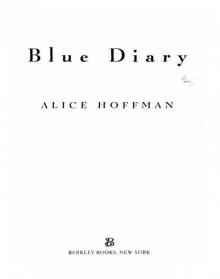 Blue Diary
Blue Diary The River King
The River King Here on Earth
Here on Earth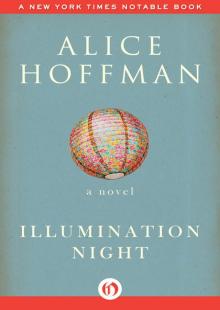 Illumination Night: A Novel
Illumination Night: A Novel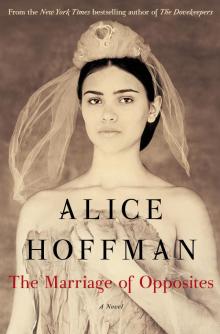 The Marriage of Opposites
The Marriage of Opposites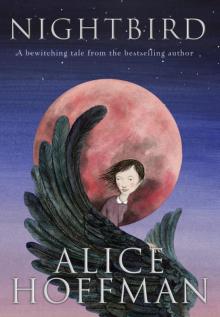 Nightbird
Nightbird Incantation
Incantation Skylight Confessions
Skylight Confessions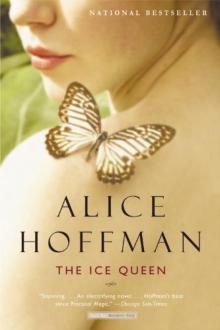 The Ice Queen
The Ice Queen Second Nature
Second Nature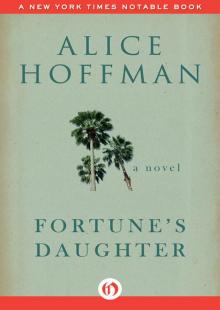 Fortune's Daughter: A Novel
Fortune's Daughter: A Novel Seventh Heaven
Seventh Heaven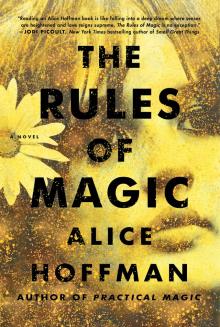 The Rules of Magic
The Rules of Magic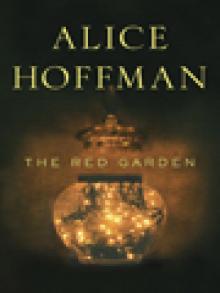 The Red Garden
The Red Garden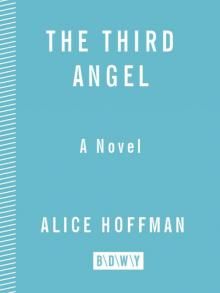 The Third Angel
The Third Angel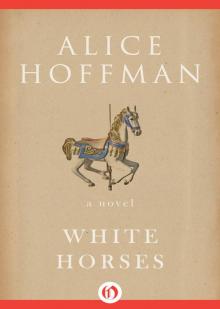 White Horses
White Horses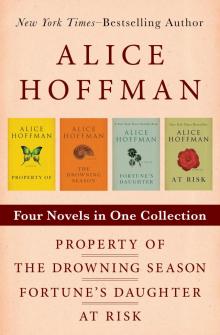 Property of / the Drowning Season / Fortune's Daughter / at Risk
Property of / the Drowning Season / Fortune's Daughter / at Risk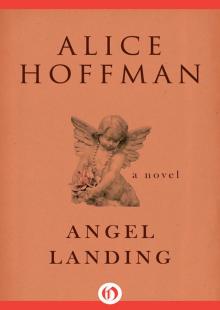 Angel Landing
Angel Landing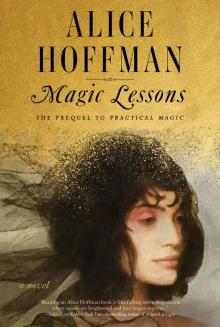 Magic Lessons
Magic Lessons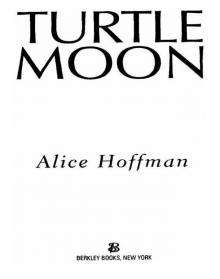 Turtle Moon
Turtle Moon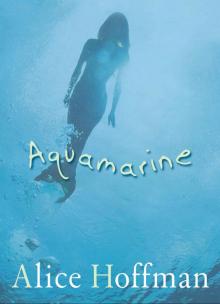 Aquamarine
Aquamarine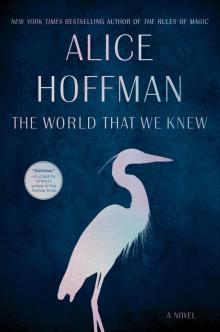 The World That We Knew
The World That We Knew Faithful
Faithful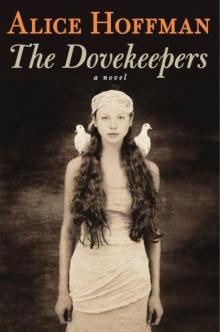 The Dovekeepers
The Dovekeepers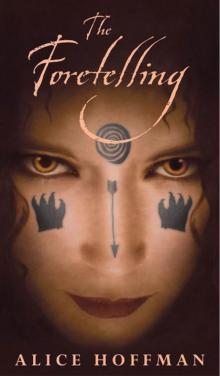 The Foretelling
The Foretelling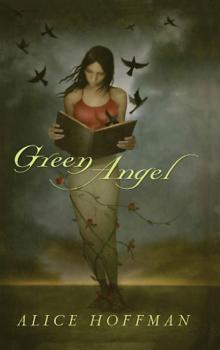 Green Angel
Green Angel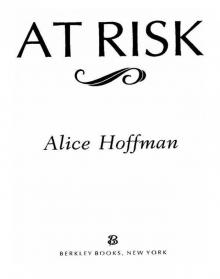 At Risk
At Risk Green Heart
Green Heart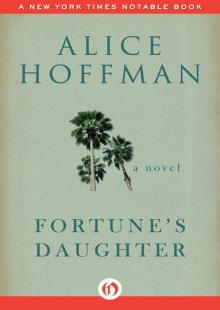 Fortune's Daughter
Fortune's Daughter Faerie Knitting
Faerie Knitting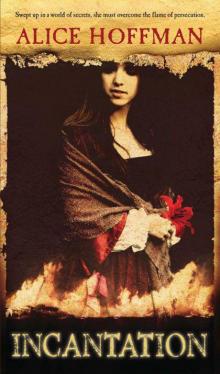 Incantation (v5)
Incantation (v5) Green Witch
Green Witch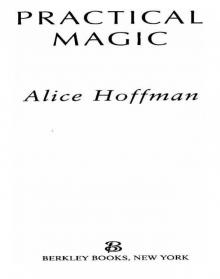 Practical Magic
Practical Magic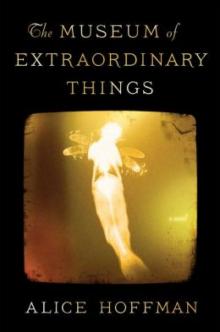 The Museum of Extraordinary Things
The Museum of Extraordinary Things The Probable Future
The Probable Future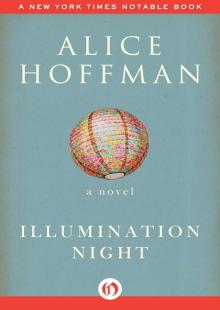 Illumination Night
Illumination Night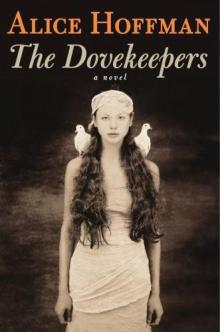 The Dovekeepers: A Novel
The Dovekeepers: A Novel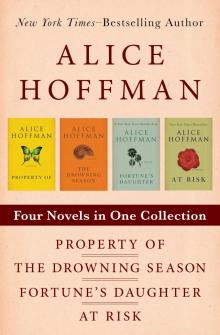 Property Of, the Drowning Season, Fortune's Daughter, and At Risk
Property Of, the Drowning Season, Fortune's Daughter, and At Risk